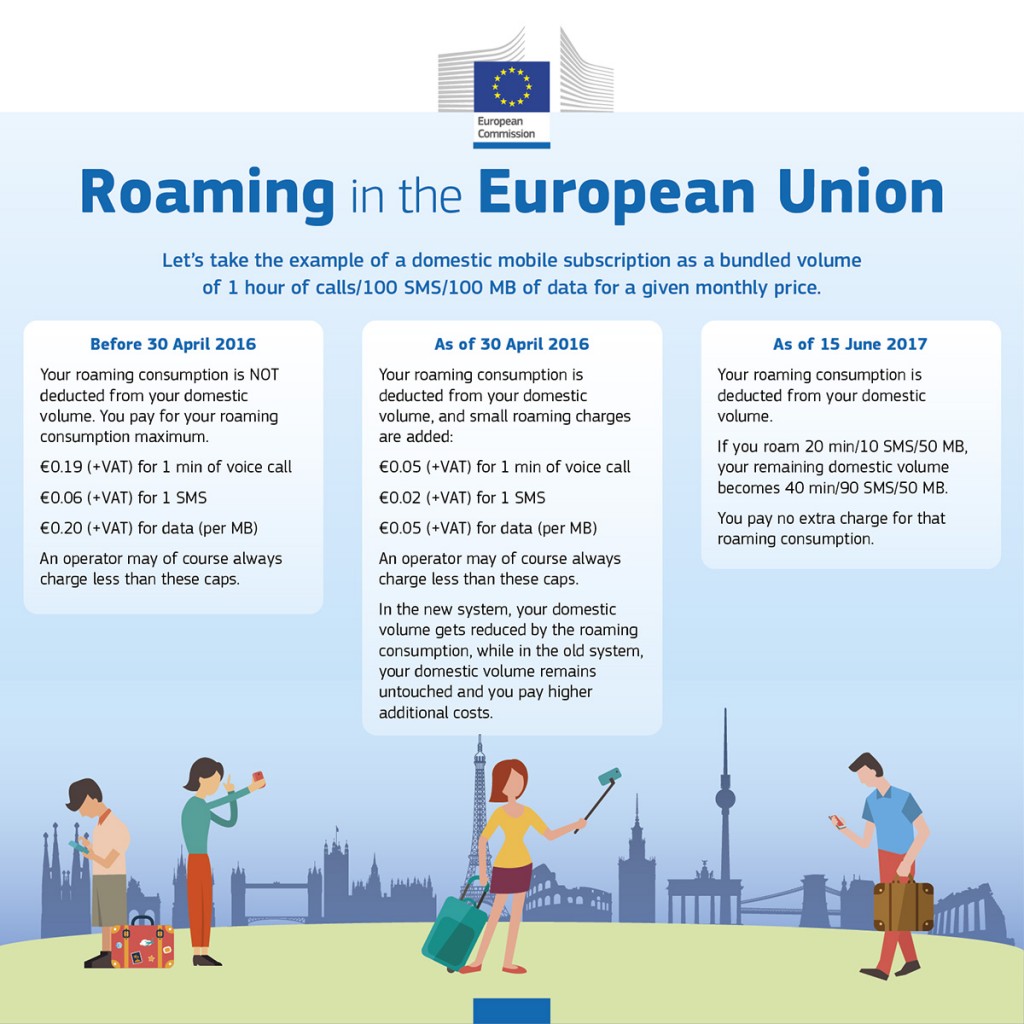Europe is Closer to Abolition of Roaming Charges
Economy 2 May 2016As of 30 April, calling, texting or surfing online from another Member States has got cheaper, since roaming tariff have been reduced even further by the European Union. The European Commission wants to make the cost of phone calls and data usage the same as doing so at home from 15 June 2017. The non-discriminatory net neutrality rules have also entered into force.
“The 30th of April is a great day for consumers! They will benefit from reduced roaming charges, of up to four times, on voice, data and text messages when traveling in the EU. It’s the final step before the total abolition of roaming charges in June 2017,” commented Pilar del Castillo Vera, the Spanish EPP member responsible for steering the new rules through Parliament.
Indeed, this is still a short transition period when operators are able to charge a small amount on top of domestic prices. As an example, a phone call can be charged by operators up to five cents per minute in addition to the domestic price while text messages price (SMS) can be increased up to two cents.
The Reduction of Roaming Tariffs
Commission Vice-President Ansip, in charge of the Digital Single Market, said: “We’re in the home stretch now before the end of roaming charges in 2017. This is not only about Europeans saving money, this is about bringing down barriers in the Digital Single Market.“
Since 2007, the EU has been working to reduce roaming charges and the European Parliament has repetitively asked to scrap them altogether.
In June 2015 negotiators from the Parliament, the Council and the European Commission reached an agreement on the telecoms package and the abolition of mobile call roaming charges.
As a result, from mid-June 2017, the same price for phone calls and data usage will be paid by all Europeans across the continent, whether they use their mobile devices at home or in another EU country.
The Neutrality of the Net established
The telecoms package also includes the first EU-wide net neutrality rules, which entered into force on the 30 April. Its aim is to ensure open access to internet content without discrimination – no blocking or throttling of online content, applications and services.
“These rules protect the right of every European to access the online content of their choice, without interference or discrimination. They will avoid fragmentation in the Single Market, creating legal certainty for businesses and making it easier for them to work across border,” said Commissioner Oettinger, responsible for the Digital Economy and Society.
Internet providers will not be allowed to reduce the internet speed and use it for commercial practices, since no paid prioritisation of traffic in the internet access service is now possible under the new rules. As all traffic has to be treated equally, internet access providers cannot pick winners or losers on the internet, or decide which content and services are available. Users are then free to choose their favourite apps no matter the offer they subscribe.




